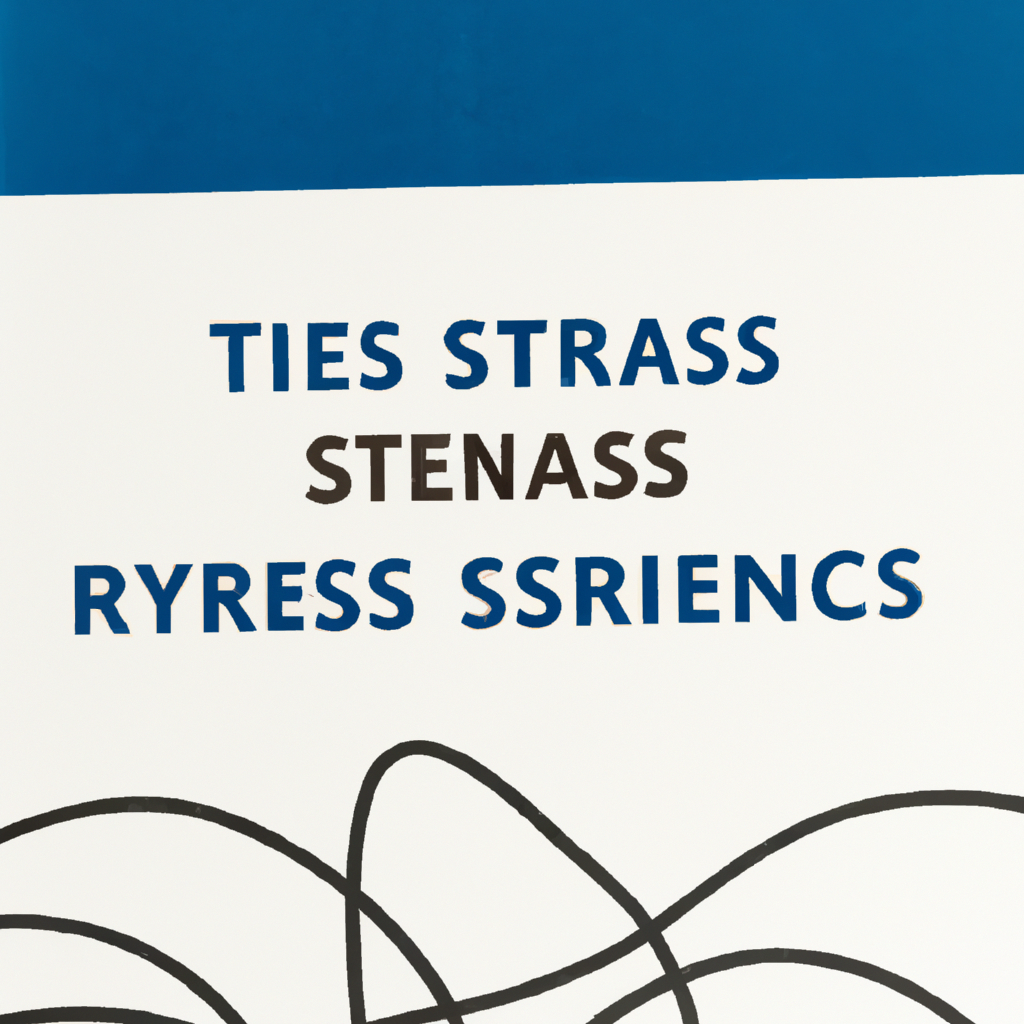For many, stress is a regular part of life that can be hard to tackle. Exercise is an effective way to combat stress and promote physical and mental health. In this article, we will delve into the ways exercise can be used to relieve tension and manage stress. Read on to learn the benefits of using exercise as a stress reliever and how to get started.
1. Free Yourself from Stress through Exercise
Do you find yourself weighed down by a seemingly endless amount of stress? Let’s face it – it’s an inevitable part of life. But that doesn’t mean you have to give into it or simply accept it. Exercise can be an effective way to reduce stress and free yourself from uncomfortable feelings. Here are some tips to get you started.
- Set realistic expectations – Don’t over commit yourself to a rigorous exercise program if you know it’s something you won’t be able to stick to. It’s important to find an activity level that works for you and that can fit into your lifestyle.
- Choose something you enjoy – If you’re not having fun while exercising, it won’t be sustainable and your motivation will suffer. Think about what types of activities make you feel good and which ones leave you feeling miserable.
- Make it social – Having someone to exercise with can make all the difference when it comes to sticking to an exercise program. Studies show that people who work out with friends or in a group setting are more likely to stay consistent.
Easing stress through exercise can be a great way to improve your mental wellbeing. Not only can it help reduce your stress level, but it also has many additional health benefits such as increasing your energy and improving your sleep. So why not give it a try?
Don’t despair if you can’t find the time or motivation to do a full workout. Even something as simple as a brisk walk in your local area can have a beneficial effect on your mental state. So find an activity that works for you and make it a regular part of your routine to stay healthier and happier.
2. Unlocking the Power of Movement
Humans are born ready to move, responding to their environment and learning from it. Our bodies are designed to adapt and enable us to take on whatever challenges life throws at us. assists us in experiencing physical, mental and emotional wellbeing. Here’s why:
- Mental Strength: exercise releases endorphins – ‘feel good hormones’ – which lift our moods, reduce anxiety and can help to prevent depression.
- Improved Physical Health: exercise helps to build stronger bones, muscles and joints, as well as improving (or maintaining) our ability to use our bodies efficiently.
- Increased Agility: whatever your level of physical fitness, regular exercise will promote flexibility, enabling you to move freely. Improved movement awareness means quicker reactions to unpredictable situations.
Partaking in regular physical activity encourages us to be conscious of our physical capabilities and weaknesses, enabling us to set achievable goals. But it’s not just physical, a little exercise each day can dramatically impact the way we perceive ourselves, see the possibilities open to us, and brighten our outlook on life.
Whether you prefer to take part in competitive sports or solo activities like walking, hiking or yoga, or find a combination of both more rewarding, can be the key to achieving balance in our lives.
3. Sweating It Out: How Physical Activity Reduces Tension
Taking the Stairs
When it comes to shaking off tension and anxiety, physical activity can be a great option. Taking the stairs instead of the elevator can be a great place to start. Release the stress in your body with a few flights of stairs – use the time to concentrate on your breathing and how it can help you stay present in the moment. If you’ve been sitting at a desk all day, burning off some excess energy can be a way to restore your equilibrium.
Stretching Into It
Stretching can be a great way to reduce stress. Stretching releases built-up tension in your body while also improving your balance and flexibility. Not sure where to start? Try a few simple yoga stretches that target most parts of the body. Make sure to take deep breaths while stretching to help keep your mind in the present and away from any anxious or worrying thoughts.
Hit the Road
Sometimes it’s great to just get out and go for a run or a bike ride. It can help to clear your head and come back into a calmer and more relaxed state of mind. Jogging especially can be a great way to get your heart rate going and release serotonin.
Indoor Activity
For those days when you’re stuck inside and unable to get out and about, why not try some activities to help release some of your pent-up stress? Aerobic activities such as jumping jacks, bicep curls and sit-ups can get your body moving and may even bring some smiles to your face – what can be better than that? Or you can always turn on some music and bust a few moves to get your body grooving.
Physical activity can be a great way to reduce tension and reinvigorate your body and mind. It can help you to:
- Burn off excess energy
- Release tension
- Produce serotonin
- Have fun
So, what are you waiting for? Sweating it out could be the key to unlock your inner calm!
4. On Our Way to Stress Relief: Making Exercise a Part of Your Life
In the midst of everyday life, stress is an unavoidable part of life, whether we’d like to admit it or not. During the times when our daily obligations become overwhelming and our mind is cluttered with all of the tasks on our to-do list, exercising can be a great way to give our bodies and our minds some much needed relaxation. But even though it can be a great way to destress, it can be hard to make exercising a priority.
Know Your Reasons: Before beginning any long-term commitment to fitness, it’s important to look inward and figure out why you want to become more active. What are the reasons that draw you to physical activity? Is it to become stronger, gain more energy, or gain a sense of control over your day-to-day life? Whatever the reasons behind your decision, it’s important to know why you are signing up for a more active lifestyle.
Start Small: Again, making any commitment to fitness can appear daunting, and it’s important to remember to take it at your own pace. It won’t help to push yourself too far outside your boundaries and reach for too much in a short time, so start slowly and gradually build up to the goals you ultimately hope to reach. Besides, any amount of physical activity is far better than none at all!
Find an Activity You Like: Variety is the spice of life and this applies to fitness too. Basketball, hiking, dancing, yoga, running, rollerblading, and more – the list of activities to choose from is near endless! Find something that sounds fun to you, and that way, exercising will be something you’ll look forward to and enjoy rather than dread.
And, here are a few tips to keep in mind:
- Set a consistent schedule and time for your workouts and stick with it.
- Look for a workout buddy or sign up for a class – group activities can be a fun way to stay fit and motivated!
- Choose an activity that will keep your body and mind engaged – multitask and combine exercise with other activities, such as listening to your favorite podcast during a jog, or otherwise.
Exercise is an effective tool to reduce and cope with stress. Not only does physical activity have numerous physical benefits, but it can also help us manage and relieve stress. Whether you’re feeling overwhelmed or just need a break from the day-to-day grind, get up, get moving, and start using exercise as a way to relieve tension and put your mind at ease.



